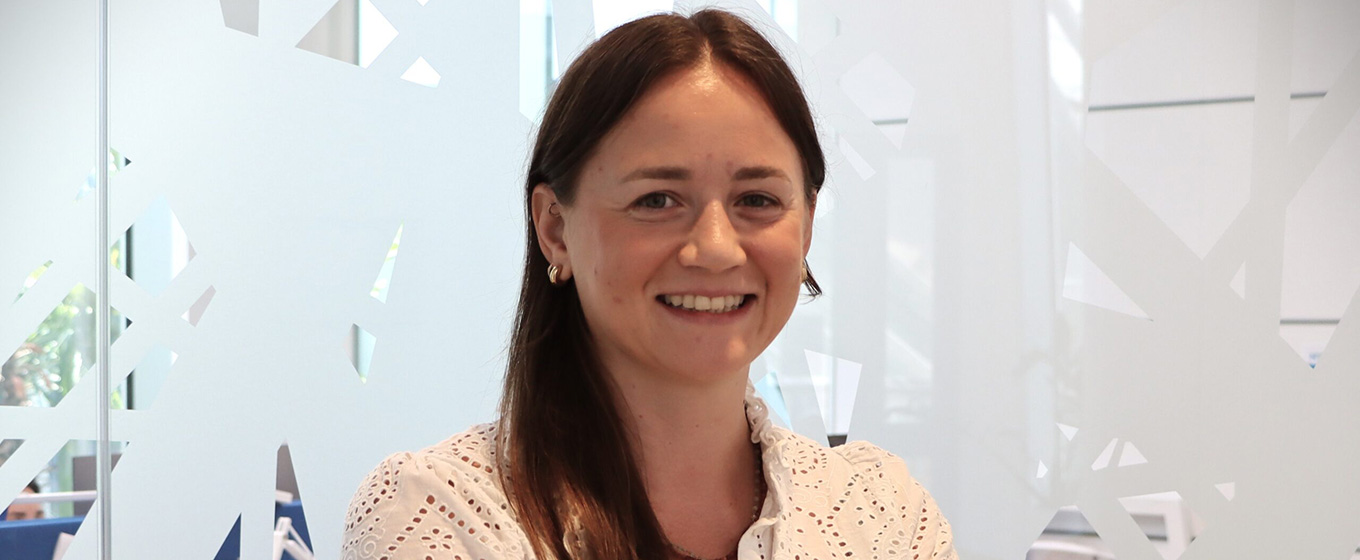From Early Tech Curiosity to Linguistic Computing in Milan

by Isabella Diaz Martin
Could the rise of AI-powered translation tools bring us closer to a universal language for global communication, or might it contribute to the extinction of minority languages and erode the rich diversity of human expression?
As artificial intelligence becomes increasingly embedded in our daily communication, the relationship between language and technology rapidly evolves. Machine translation and Natural Language Processing promise seamless global interaction, but they also raise urgent questions about cultural identity, nuance, and the preservation of minority languages. In this era of linguistic automation, we are challenged to consider not just how we communicate – but what might be lost, or gained, when language becomes data.
What happens when a tech-savvy creative leaves the corporate world to follow her curiosity? Sandra Mickwitz, a student at Università Cattolica, traded her job in Germany for a new start in Milan. Now pursuing a Master of Science in Linguistic Computing, she’s applying her skills in Natural Language Processing at Human Technopole – and proving that it's never too late to reinvent your path.
Time is finite, and true coincidences are rare. Every decision you make today could set off a butterfly effect that changes your life. Just ask Sandra Mickwitz – a techdriven creative who found her next chapter in Milan through the master’s programme in Linguistic Computing at Università Cattolica.
Imagine arriving in Milan during 2020: travel restrictions, city in lockdown and social distancing – a difficult start to the Italian dolce vita. This is what Sandra Mickwitz, and her Italian partner experienced, as any would, Sandra started thinking: What will I do next? What can I even accomplish in these circumstances?
Let’s look back at how she got there:
In a Swedish-speaking town in Finland, a young Sandra learned how to type her name with a computer keyboard before she could pick up a pencil. Maybe it was the memories of her dad taking apart computers and making sure the PC had all the updates or her early tech proficiency, but technology has always been a red thread weaved through her life.
Studying Computer Sciences at the University of Stockholm, she met her Italian partner, another red thread she began to weave, unaware of just how far it would take her.
But her life story isn’t made of red threads alone, it’s also shaped by opportunities she created. Sandra describes herself as curious and creative, believing that your only limit is your creativity and it’s up to you to make things happen. This mindset is tied to her life philosophy: saying yes, which she describes as another red thread:
“A red thread for me has been saying yes to opportunities when they arise sometimes even without completely knowing what it completely includes. I think this has been crucial in helping me figure out what I truly want to do, and trying to say yes to as many things as possible.”
After relocating to Germany alongside her partner, she landed a corporate position in Germany, working for the American company EBSCO: an opportunity she pursued on her own initiative, and she said yes to without much information. While she enjoyed her time there and feels fulfilled by the knowledge, experiences, and contributions she made, with the move to Italy among pandemic struggles, she took a step back to think about what to do next. She shared with us a thought that helped her come to a decision:
“If I had all the money in the world, what would I choose to do, and would that be what I am doing currently, or would it be something else?”
Her everlasting thirst for learning is how she discovered the Linguistic Computing master’s programme at Università Cattolica – an ideal fit for someone with a tech background and a passion for language; Sandra explains that her computer science degree was approached from a humanities perspective, which made the programme at Cattolica all the more appealing to her.
She highlights how her experience coming back to academia has given her a different perspective to ground herself and focus on what’s really important: learning. The international community at Cattolica has also been a source of comfort and help whenever she’s needed. Sandra, always searching for her next adventure, started an internship at Human Technopole, where she is currently working on her dissertation and exploring real-world applications of Natural Language Processing (NLP) in the public policy sector.
Sandra’s journey through Linguistic Computing mirrors the promise and challenge of AI-powered translation tools. While these technologies can bring us closer to seamless global communication, they also prompt critical questions about cultural identity and preserving minority languages. As Sandra explores the intersection of technology and language, her work highlights an essential responsibility: ensuring that advances in AI do not just streamline communication but also honour and protect the invaluable richness of human linguistic diversity.

